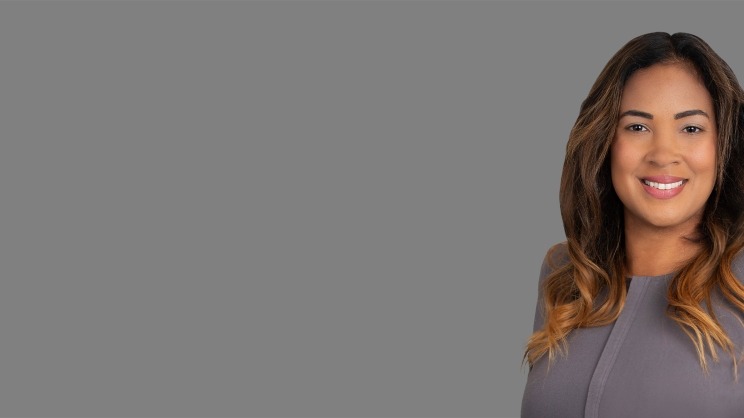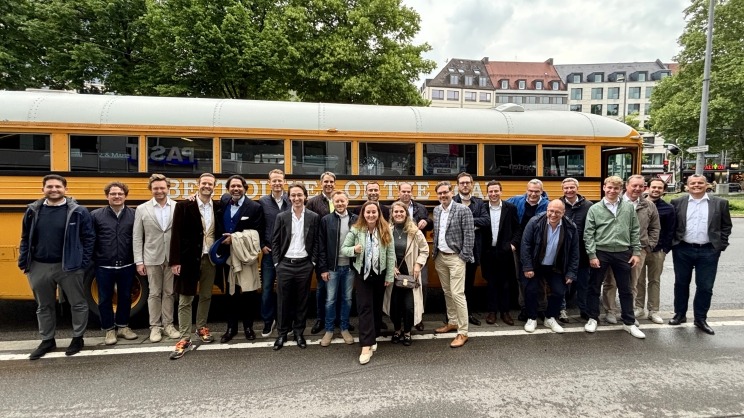Campus Spotlight: Paul Belanger

An Associate's Perspective on Embracing Challenges and Mentorship in the Early Career Stage
Paul Belanger is an Associate in Alvarez & Marsal’s (A&M) Healthcare Industry Group (HIG) in New York, New York. He earned his bachelor’s degree in business and political science from Trinity College Dublin.
In this Q&A, Paul emphasizes the importance of being a self-starter, navigating the discomfort of unfamiliar situations, and the collaborative culture at A&M that motivated him to join full-time. He also shares insights on staying updated with industry trends, the significance of genuine professionalism, and the perks of a travel-heavy consulting job.
Reflecting on your college experience, what unexpected lessons or insights have you gained that have significantly impacted your career?
My university had little to no continuous assessment, with most classes graded on a couple of final exams/assignments. This made me more independent as it forced students to figure out how to manage their learning and time to ensure they were ready at the end of the term because nobody was checking in on them. A self-starter attitude and the ability to manage occasionally nebulous tasks toward a defined goal are very good traits at A&M.
Why did you choose to intern at A&M?
I was (and am) interested in healthcare management, and A&M has a strong healthcare industry group with a great reputation. A&M’s more direct involvement (compared to other consulting firms) with clients and their problems (interim management, etc.) appealed to me.
What motivated your decision to join A&M full-time?
The culture of collaboration rather than competition was a key reason for joining full-time.
Embracing Challenges and Leveraging Mentors to Navigate Early Career Challenges
Reflecting on your career's early stages, what unexpected challenges did you encounter, and how did you navigate them to emerge stronger?
It is very important to learn how to be comfortable being uncomfortable. The nature of consulting work is that you are exposed to many unfamiliar situations and are often dropped into the middle of very difficult situations. This never goes away; throughout your career, you will continue to be exposed to many unfamiliar situations. However, you get used to that discomfort and learn to channel it into productive work.
How do you stay updated on industry trends and developments, and what resources do you rely on for continuous learning and growth?
Beckers Hospital Review is fantastic for staying up to date on healthcare industry trends and the healthcare sections of most major newspapers. Suppose you need to familiarize yourself with finance and/or Excel. In that case, LinkedIn Learning has some great resources for starting there, but it likely won’t be very useful if your skills are more intermediate.
Who are the individuals you consider your closest mentors, and what valuable lessons have you learned from them?
An A&M Director who I worked under taught me many practical ‘hard’ skills (Excel, analysis skills, etc.) but also many valuable ‘soft’ skills, such as the idea that professionalism and amenability should not mask your personality or individuality. Being genuine is important to yourself and more likely to leave a positive impression on clients and coworkers.
Essential Tips to Seamlessly Transition from School to Work
What crucial skills or qualities do you believe students should prioritize developing to thrive in the consulting industry, and how can they best prepare themselves?
Outside of the more obvious technical skills (Excel modeling, financial analysis, building slides, etc.), learning to be independent is an important skill in consulting. Independence does not mean that you are unable to ask questions, just that you can consistently apply the skills in your toolkit (once those skills are sufficiently developed) with effective organization and minimal oversight.
Looking back, what advice would you offer recent graduates about effectively transitioning from academia to the professional world?
Learning to manage your own time and work is an important adjustment. Goals and deadlines are not always as defined as in academia, where X assignment is due on Y date with Z requirements. Consulting involves building up your knowledge and skill set to eventually implicitly understand what a final product should look like and how long it should take to produce.
What are some notable perks or benefits you've experienced working in the consulting industry?
Points, points, points. The benefit of a travel-heavy job is that airline and hotel rewards can build up quickly and benefit personal travel. A less quantifiable benefit would be the nature of the work (moving from project to project), which allows you to meet plenty of new people and be exposed to many professional environments, which is helpful for professional development on almost any career path.
What's your favorite hobby or activity outside of work, and how did you get into it?
I love reading about history, whether in books or academic papers online. I have been interested in history since my middle school world history class (thanks, Mr. Baker). Currently, I’m reading “Revolutionary Spring” by Christopher Clark and have “The Black Jacobins” by C. L. R. James waiting on my shelf for my next book.
What's a book, movie or TV show that has profoundly impacted you, and why?
As a kid, I read “The Hitchhiker’s Guide to the Galaxy,” which shaped my sense of humor and, to some extent, my outlook on life. It is important to spend time and focus on working to change the things you can affect in your life, but it is equally important to recognize and accept that some things are beyond your control.




